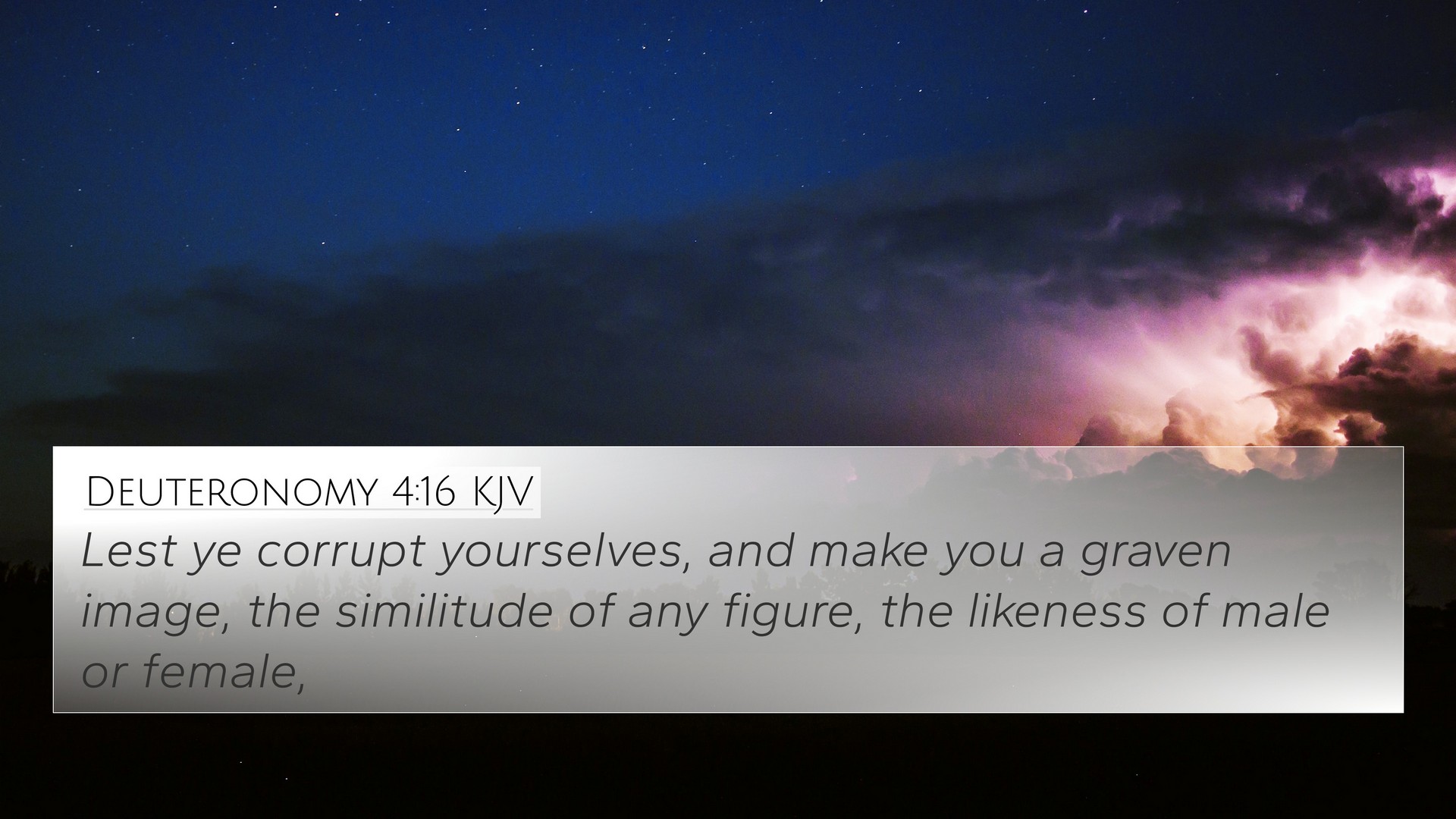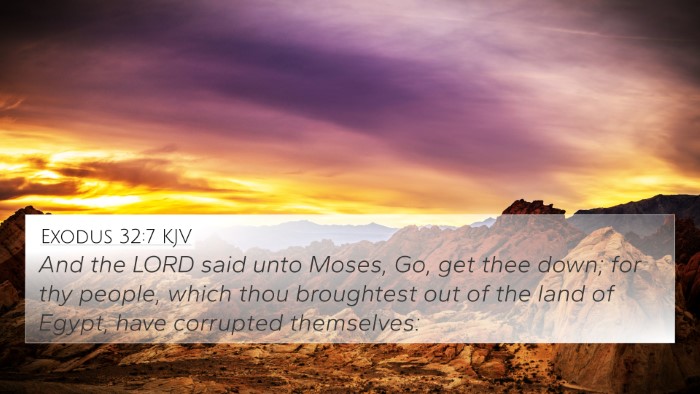Understanding Deuteronomy 4:16
Deuteronomy 4:16 states: "Take heed to yourselves, lest your heart be deceived, and ye turn aside, and serve other gods, and worship them." This verse serves as a strong admonition from Moses to the Israelites. It conveys essential themes about vigilance, the dangers of idolatry, and the need for faithfulness to God.
Summary of Meaning
In this passage, Moses emphasizes the importance of guarding one's heart against deception. The act of turning away from God to serve other gods implies a deliberate act that stems from a failure to stay vigilant. The verse acts as a warning against the allure of false worship, underscoring the significance of maintaining a pure heart devoted to Yahweh.
Combined Insights from Commentaries
-
Matthew Henry:
Henry highlights that the heart is deceitfully wicked, and thus, the people need to be on guard against it. He notes that idol worship stems from a heart that has turned away from God. His interpretation stresses the importance of recognizing the subtleties of temptation and deception that lead to spiritual ruin.
-
Albert Barnes:
Barnes encourages a deep examination of one's spiritual state, noting that the heart can be easily led astray. He connects this warning to the historical failures of Israel to maintain faithfulness to God, suggesting that remembrance of past experiences should serve as a deterrent against future unfaithfulness.
-
Adam Clarke:
Clarke elaborates on the use of 'taking heed' as a call to active vigilance. He interprets the verse as a reminder that constant awareness is necessary to prevent idolatry, which destroys the covenant relationship with God. Clarke's insights place emphasis on the necessity of diligence in one's spiritual life and practices.
Thematic Connections and Cross-References
Deuteronomy 4:16 stands in various connections within the scripture that addresses the themes of idolatry, vigilance, and worship. Here are some relevant cross-references that provide deeper understanding:
- Exodus 20:3-5: The warning against having other gods and the prohibition of idolatry.
- Deuteronomy 6:14-15: An exhortation to not follow other gods and the consequences of such actions.
- James 1:14-15: The temptation of the heart leading to sin, paralleling the deceitfulness described in Deuteronomy.
- 1 John 5:21: A direct call to avoid idolatry, echoing the sentiments of Deuteronomy.
- Jeremiah 17:9: The deceptive nature of the heart, reinforcing the need for vigilance as in Deuteronomy.
- Proverbs 4:23: An admonition to guard the heart above all else, closely aligned with the warning in Deuteronomy.
- Romans 12:2: A reminder not to be conformed to this world, which echoes the need for spiritual awareness against worldly influences.
Applications for Cross-Referencing and Further Study
For those seeking to deepen their understanding of Deuteronomy 4:16 and further scriptural themes, various tools and methods can be employed. These include:
-
Bible Concordance: A resource that allows users to find terms and their corresponding verses, facilitating deeper study on the themes of idolatry and heart deception.
-
Cross-Reference Bible Study: Utilizing passages that reflect similar teachings helps in understanding overarching Biblical principles.
-
Bible Cross-Reference Guide: This guide aids in connecting verses throughout both the Old and New Testaments for thematic studies.
-
Bible Chain References: This method helps establish continuity in themes such as heart integrity and the dangers of idolatry, by following linked verses.
The Importance of Vigilance in Faith
The essence of Deuteronomy 4:16 serves not only as a historical caution for the Israelites but also a timeless principle for modern believers. Understanding and applying scriptural truths lead to a more robust spiritual life, characterized by diligence against temptation and commitment to worshiping the one true God.
Conclusion
In examining Deuteronomy 4:16 through the lens of these commentaries and cross-references, it becomes clear that the call to vigilance is vital. The interconnectedness of various scriptures enhances our understanding of how the Bible dialogues within itself, encouraging believers to reflect deeply on their relationship with God and the repercussions of idolatry.















